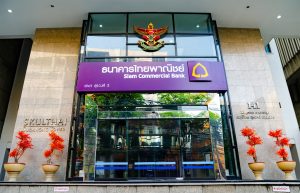Thailand’s central bank and anti-money laundering agency say they have found no evidence to support claims from a recent U.N. report that Thai banks have facilitated the acquisition of weapons by Myanmar’s military junta.
The report from the Office of the United Nations High Commissioner for Human Rights (OHCHR), released in June, claimed that companies registered in Thailand had used Thai banks to transfer funds for the purchase of weapons and related military materials. Such purchases totaled nearly $130 million in the 2023 fiscal year, the report said, compared with $60 million in 2022.
Following the report’s release the Thai government announced the establishment of a task force to investigate OHCHR’s claims and to “further equip and enhance the ability” of Thai banks to conduct due diligence on transactions that could be connected to human rights abuses in Myanmar. This came after bank representatives told a parliamentary committee that they lacked the capacity to investigate transactions properly.
“The investigation found that some financial institutions did conduct transactions with individuals listed in the OHCHR report, but no evidence was found linking these transactions to arms procurement,” the Bank of Thailand and the Anti-Money Laundering Office said in a statement yesterday, according to a Bloomberg report.
The review found that Thai financial institutions had “varying levels of rigor in their operations,” the agencies said, emphasizing the need to improve anti-money laundering and counter-terrorism practices.
“This would enable financial institutions to better manage the risks of being used as channels for funding illegal activities and human rights violations, which may manifest in new forms,” the agencies said.
The OHCHR report, which was authored by Tom Andrews, the U.N. special rapporteur on the situation of human rights in Myanmar, tracked how the military junta has been able to continue procuring arms by shifting suppliers of financial services and military hardware in response to the imposition of economic sanctions by Western governments including the United States. It found that the military junta “continues to engage with a broad international banking network to sustain itself and its weapons supplies,” enabling it to sustain both its battlefield campaigns and its retributive assaults on civilian populations.
The most marked shift noted by the report was the emergence in 2023 of Thailand as the military junta’s “leading source of military supplies purchased through the international banking system.” It said that Thai banks had taken up the slack following crackdowns in Singapore, a nation that had for many years previously served as an offshore trade hub and financial sanctuary for the Myanmar military and its galaxy of allied business people.
In a report published in 2023, Andrews documented how Singapore-based entities had become the military junta’s third-largest source of weapons materials, after Russia and China, despite the government’s opposition to the transfer of weapons to Myanmar. Following a subsequent investigation by the Singaporean authorities, “the flow of weapons and related materials to Myanmar from Singapore-registered companies dropped by nearly 90%,” with Thailand picking up the slack, Andrews wrote in this year’s report. These included the purchase of spare parts for Mi-17 and Mi-35 helicopters and K-8W light attack aircraft, which the report claims were used by the junta to conduct airstrikes on civilian targets.
Andrews wrote that Singapore’s crackdown showed that decisive actions by national authorities could have a decisive effect on the junta’s ability to purchase arms.
“If the government of Thailand were to respond to this information as the government of Singapore did one year ago, the SAC’s ability to attack the people of Myanmar would be significantly impaired,” he wrote in the report.
































